Relevant Overviews
- Communication Strategy
- Content Strategy
- Online Strategy
- Online Community Management
- Social Media Strategy
- Content Creation & Marketing
- Digital Transformation
- Fediverse
- Innovation Strategy
- Surveillance Capitalism, Social media and Polarisation (Overview)
- Communications Tactics
- Psychology
- Social Web
- Media
- Politics
- Communications Strategy
- Science&Technology

Fighting people with facts only makes them cling to their beliefs more strongly, further polarising our damaged societies. Different tactics are needed, and they start closer to home than you think.

a “Topics to Follow” box in the News Feed that lets you swipe through a range of themes... Tapping “Follow” brings you to a dedicated feed for that theme populated by a collection of Pages ... tap through to see all the Pages you’ll then see public posts from in your main feed... Facebook could expose people to contrarian views that might make the…
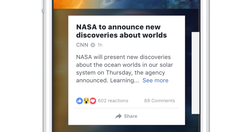
instead of highlighting a single news outlet when you click through to a Trending topic, Facebook will now show a carousel of the other most popular articles written about the subject by different publishers... that could backfire by showing you more biased sources than you’d normally read. Not every fact needs an “alternative” take.
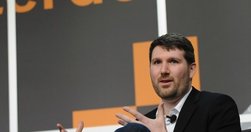
Pariser’s work has led him to believe that blaming fake news for fractured discourse is a red herring... The filter bubble explains a lot about how liberals didn’t see Trump coming, but not very much about how he won the election... my guess is that talk-radio, local news, and Fox are a much more important piece of that story than random conservat…

In the United States... the chances that two people visiting the same news site have different political views is about 45 percent... the internet is far closer to perfect desegregation than perfect segregation... you are more likely to come across someone with opposing views online than you are offline... a surprising amount of the information …
I’ve been meaning to blog about the ‘backfire effect’ cognitive bias since first coming across it last December. It went to the top of my ToBlog list thanks to a little serendipity...

The new right’s echo chamber is hermetically sealed, while the left’s is not.... Private platforms like Facebook are under no obligation to provide us a diverse worldview. If it is more profitable to ... isolate us in a bubble of ideologically comfortable information, they will.... build an aggregator where the algorithms can be reviewed by schola…

Facebook will start adding “related” articles from different publications underneath a news post about a trending topic in your News Feed.

On fully eight of the nine measures, “polarization increases more for the old than the young.” If Facebook is the problem, then how come the problem is worst among those who don’t use Facebook? ... polarization is accelerating fastest among those using the internet the least... social media is important. It’s just not the whole picture... two mai…
there’s plenty of reasons why negativity abounds online... Incivility is a basic human instinct that’s encouraged by anonymity and exacerbated by inequality... anger helps drive participation... anyone who benefits from trolling — whether it’s platforms themselves or populist politicians — have little reason to improve the tone of online chatting…
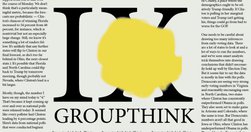
Groupthink produced a failure of the “wisdom of crowds” and an underestimate of Trump’s chances... political experts aren’t a very diverse group and tend to place a lot of faith in the opinions of other experts and other members of the political establishment. Once a consensus view is established, it tends to reinforce itself ... Social media, esp…

Material that arouses heated emotions within the viewer spreads faster and wider than well-considered, evidence-based argument.For an elected leader, a u-turn is seen as the ultimate betrayal, but for a scientist, changing views in the face of better evidence is a sign of the highest integrity.... Imagine, if you will, a sort of spellchecker appl…

uses machine learning to give readers a stream of 25 stories they might be interested in based on their preferences, but 'always including an element of surprise'... personalisation will be based on the meaning of an article... users' existing history that shows roughly what type of stories they are interested in

to put the blame solely on the company is to overlook how people use the site, and how they themselves create a filter bubble effect through their actions.... Just as important as the algorithm is how people use the site and shape it around their own communications... people are actually exposed to a great deal of diversity through Facebook... But…

AllSides.com offers the news you’d expect on any US politics site, except that its lead stories include a choice of articles: one from the left, centre and right... to push the comfortably certain in new directions... When you click on one story you’re offered a range of alternatives... a patented ‘crowd-driven’ political bias rating. Visitors ..…
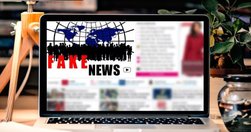
We know little about the amount of fake news an average citizen consumes, or how it fits into their overall news diet... What we found calls into question the severity of the fake news crisis.... We gathered data for both the real and fake news sites from comScore... First, the fake news audience is tiny compared to the real news audience–about 1…
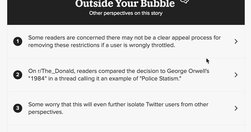
to give our audience a glimpse at what’s happening outside their own social media spaces... Outside Your Bubble feature will appear as a module at the bottom of some widely shared news articles and will pull in what people are saying about the piece on Twitter, Facebook, Reddit, the web, and other platforms.
Over the next few weeks, on the Online Journalism Blog, I'll be talking to some of the entrepreneurs trying to change the way we use the internet for news and current affairs.

But millions of people chose to skip the media ... and watch the speech live, via Facebook... greeted with a litany of comments and emoticon reactions, all colored by the point of view of the outlet broadcasting it...a live or real-time filter bubble, where a viewer’s perceptions of a live event are colored by the commentary that surrounds it.

everyone is intransigent now ... Social media acts as a massive collective Sorting Hat, silently assigning most of us to filter bubbles wherein our beliefs and biases are rarely challenged. News (or “news”) sources rise up to cater... slowly, these isolated groups do what isolated groups do... become more extreme. Increasing extremity in one group…

To some liberals, Donald Trump’s inauguration portends doom... to many conservatives, it’s a crowning moment ... as if each side is living in ... a different reality.... information avoidance... all of us ... ward off any new information that makes us feel bad, obligates us to do something we don’t want to do or challenges our worldview... we’re …

when I saw the potential of the Internet, I thought it would be solved. The web would allow us to come together, not just across the world, but across the park, across racial lines, across our many divides... everything turned upside down. The open communication network we thought we were building turned into a hunting ground for trolls and spamme…

the liberal critiques I read weren’t so much attacking my decision as they were questioning my intelligence and my ability to understand the issue... I was on the outside of the so-called liberal bubble... what I saw was not pretty... contempt and arrogance, and an offensive air of intellectual superiority... incapable of talking with those who …

Where things get interesting is to consider the deep cognitive mechanisms that shape the emergence of truth networks where a coherent shared set of understandings, assumptions, and beliefs are in play.

Fake news has been around as long as real news... Social media has certainly transformed how fake news circulates, speeding up its circulation and extending its reach and impact... a much more important problem ... is the continuing delegitimization of real news by American conservatives... This is not “fake news.” It is a blatantly ideolog…

as we jump to fix the fake news problem, we may end up destroying our best hope to break through our echo chambers... those bubbles, it turns out, are far from airtight... 15-25 percent of the people we connect to on social media, on average, come from across the political divide... the level of diversity we come across in real life homophily is…

A work in progress from an upcoming eponymous post. Another experiment with the enewsletter format: some initial thoughts on this seemingly intractable problem, with some of the source materials I’m studying.

Echo chambers aren’t just a product of the internet and social media, however, but of how those things interact with fundamental features of human nature... Understand these features of human nature and maybe we can think creatively about ways to escape them... our tendency to associate with people like us. Sociologists call this homophily.... t…
I had lived in prior to the advent of the Internet was the true definition of a Bubble or Echo Chamber... everyone watched the same shows at night. Everyone got their news from the same small number of sources... rarely interacted with anyone who lived much differently from them... Nowadays ... we live in a world of endlessly competing and often …
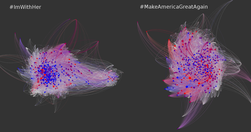
my research team’s analysis of data from Columbia University’s Emergent rumor tracker suggests that this misinformation is just as likely to go viral as reliable information... limiting news fakers’ ability to sell ads... a step in the right direction. But it will not curb abuses driven by political motives... Using BotOrNot, our colleagues found…
Relevant Overviews
- Communication Strategy
- Content Strategy
- Online Strategy
- Online Community Management
- Social Media Strategy
- Content Creation & Marketing
- Digital Transformation
- Fediverse
- Innovation Strategy
- Surveillance Capitalism, Social media and Polarisation (Overview)
- Communications Tactics
- Psychology
- Social Web
- Media
- Politics
- Communications Strategy
- Science&Technology